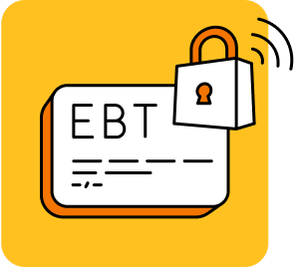The Propel Guide To EBT In Vermont: Women, Infants, and Children (WIC).
If you have a question that we haven’t answered here, let us know.

If you have a question that we haven’t answered here, let us know.
What's WIC?#whats-wic
WIC is a program that helps pregnant women, new parents, and young children eat well and stay healthy.
Eat well: WIC food packages typically include cereal, juice, eggs, milk, peanut butter, dried and canned beans, tofu, fruits and vegetables, and whole-wheat bread. WIC packages also include canned fish and cheese for breastfeeding moms, and baby food for babies.
Stay healthy: WIC also includes health coaching and help finding doctors, immunizations, and health insurance.
Do I qualify for WIC?#do-i-qualify-for-wic
Here’s an overview of WIC eligibility, but the best way to find out if you’re eligible is to apply.
There are four kinds of eligibility for WIC:
1) Categorical: you need to be a mom, child, or have custody of a child.
Moms have to be pregnant, up to six months past pregnancy, or up to your baby’s first birthday if you’re breastfeeding.
Children are eligible up to their fifth birthday.
Foster parents, guardians and single fathers who have custody of their children are also eligible.
2) Residential: You need to live in the state where you’re applying.
3) Nutritional: A health professional needs to determine if you are at “nutrition risk.” This might mean you have a medical condition like anemia, or a diet that could be healthier. You can see a health professional for free at a local WIC clinic.
4) Financial: Your household needs to make less than the amounts listed in the income limit table below to qualify for WIC. A pregnant woman counts as two (or more) household members. If you know you’re having more than one baby, count each one as a household member.
If you get food stamps (SNAP), Medicaid, or cash assistance (TANF), you’re automatically financially eligible for WIC.
How do I apply for WIC?#how-do-i-apply-for-wic
Contact your local WIC clinic to make an appointment and bring:
- Proof of income. If you get food stamps (SNAP), Medicaid, or cash assistance (TANF), you’re automatically eligible for WIC from the financial perspective. If you aren’t automatically eligible, bring proof of income for all members of your household. That could be a paycheck stub, a recent tax return, or a letter from your employer.
- Proof of identity. Bring a government ID, such as a driver’s license, or another kind of photo ID plus a bill, rent receipt, or letter from an employer that’s addressed to you.
- Your child or proof of pregnancy. Bring your child or a note from your doctor saying that you’re pregnant.
- Immunization records for children. Bring if you have children.
Can I buy diapers with WIC?#can-i-buy-diapers-with-wic
You unfortunately can’t buy diapers with WIC, but there are many local diaper banks that give diapers away for free.
You should get a list of diaper banks at your first WIC appointment. If you don’t, ask for help finding one.
How long does WIC last?#how-long-does-wic-last
You can stay in the WIC program for as long as you meet all the eligibility requirements listed above.
Moms who are breastfeeding receive WIC benefits for one year after your baby is born.
Moms who aren’t breastfeeding receive WIC benefits for six months after your baby is born.
Families receive WIC benefits until your child turns five.
Am I eligible for other benefits?#am-i-eligible-for-other-benefits
Check out this benefit finder tool and find out.
